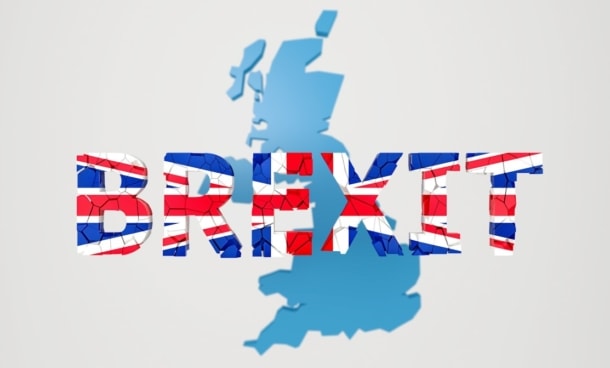Estimated reading time: 15 minutes
Vive la France – a land that offers so many opportunities to British expats.
France is Britain’s closest neighbour and a favourite expat destination, with around 180,000 expats enjoying a relaxed lifestyle in a country famous for culture, fashion, and cuisine.
Vying with Britain as the world’s fourth largest economy, France is a place of contrasts – from the glitz and glamour of the sunny Cote d’Azur to the tranquillity of quiet beaches and lonely coves of Brittany.
Expats argue moving to France offers first-class healthcare, a more relaxed lifestyle and cheaper property.
The cost of living is the same, if not slightly more, but still within easy reach of expat pockets.
If you are considering living in France as an expat, here is some information to make your move a little easier.
Table of contents
- The French Experience
- Moving To France
- Money, Pensions and Tax in France
- Pensions in France
- QROPS pensions for expats in France
- Claiming Benefits
- Cost of living in France
- Cost of Living in France Compared to the UK
- Healthcare in France
- Schooling And Further Education
- Living in France FAQ for Expats
- Related Information
The French Experience
France and Britain have had entwined histories since 1066 and William the Conqueror. For centuries afterwards, much of modern France succumbed to British rule.
But lifestyle, customs and tradition are widely different between the two countries and Brexit threatens to make the gulf even wider.
Living in France has a distinctly European flavour with an element of ooh la la, while life in Britain is undoubtedly British.
Brexit

Britain is heading to leave from the European Union on December 31, 2020.
Until then, a transition agreement is in place under the Withdrawal Agreement with the European Union to keep day-to-day life for expats living in France unchanged while politicians discuss a trade deal and more long-term arrangements for expats.
If you are already living in France, life should continue much the same from January 1, 2021, so you can continue to work, study, or enjoy your retirement.
However, when the transition period ends, you will lose the right to travel freely between France and other EU states.
To keep up-to-date with the latest developments, sign up to UK government email alerts or follow the British Embassy in France on Facebook and Twitter
Geography and people
France is more than a European country – the French regard several offshore territories and islands as part of the nation. These include French Guyana in South America, Guadeloupe, Martinique, Ile de la Réunion and several other overseas territories known as “TOM”, such as the South Sea island of Tahiti.
France neighbours Belgium, Luxembourg, Germany, Switzerland, Italy, Monaco, Spain, and Andorra, while Britain lies just 22 miles off the northern coast at the narrowest point of the Channel between the ports of Dover and Calais.
Paris is the capital. Other major cities include Lyons, Marseilles, and Toulouse.
The population is around 65 million people, the same as the UK, but the country seems less crowded as the land area is twice the size of Britain.
Most of France is within easy reach of the UK by road and rail via ferry ports and the Eurotunnel.
Politics
France is a republic headed by a president, who leads the policy making executive, the Council of Ministers.
Ministers cannot sit in Parliament; if a member (deputy) is appointed to the Council, they must give up their seat.
France is a founding nation and an integral part of the European Union.
Language
The French fiercely defend their language from Franglais – the anglicisation of French mainly from American movie, literature, and cultural influences.
English is taught in schools and is widely spoken.
Climate
Due to the size of the country, France enjoys vastly different climates from north to south.
Paris, Brittany, and Normandy have a Northern European climate like the UK, with plenty of rain and cool winters.
The French Alps to the east include Mont Blanc, the highest peak in the range, which stands more than 15,000 feet high. In the winter, the Alps are sprinkled with snow, becoming a magnet for skiers and other winter sports enthusiasts.
In the south, France has a warm Mediterranean coast running from Monaco to Spain, where the city of Nice nestles on the Cote d’Azur alongside the rich and trendy resorts of Antibes, Cannes, Frejus, and St Tropez.
Currency
France belongs to the European Single Currency, with the euro as the national currency.
Moving To France

France is Britain’s closest European neighbour. The two countries share a lot of history – and at times the relationship between the two has been fractious to say the least.
Today, France is a friendly neighbour with a more laid-back lifestyle and cheaper standard of living than the UK but still within easy reach of home. Thousands of Brits travel to France yearly, with many deciding to settle.
France is one of the top four expat destinations for British expats.
Around 180,000 Brits are resident in France.
Where expats live in France
The most popular areas for British expats to buy homes are mainly rural villages within easy reach of larger urban areas like:
Residency, visas, and passports
If you plan to stay in France for more than three months, you must register with the Office Français de l‘Immigration et de l’Intégration (OFII).
Expats already considered resident in France before the transition period ends on December 31, 2020, can stay.
All expats living in France need a new residence permit including expats:
- with a European carte de séjour stamped ‘permanent’ or without an expiry date
- without a European carte de séjour
- applying for dual citizenship
- married to or in a civil partnership with an EU national
Residency applications can be made online from July 2020.
The latest Brexit information is the French government’s guidance for UK nationals (in English)
Passports and travel
Travel rules stay the same until the end of the transition period.
Until December 31, 2020, expats can travel to countries in the Schengen area or wider EU with your UK passport without a visa.
Your passport should be valid for the proposed duration of your stay.
Working in France
Expats who are resident in France on or before December 31, 2020, can continue to work, as long as they remain resident.
Find out more from the French government’s guidance on working in France.
Expats may need to provide some documents when applying for a job:
- UK police certificate
- UK equivalent of a casier judiciare
- International Child Protection Certificate (ICPC) – a criminal records check for expats working with children
Driving in France
Driving licence rules stay the same until December 31, 2020.
Expats who have lived in France for more than 185 days can swap a UK licence for a French one by applying online to the Agence Nationale des Titres Sécurisés.
You must apply for a French driving licence if:
- You need to change or add driving categories
- You have picked up penalty points or a ban for a driving offence in France
When swapping a UK licence for a French one, do not make a parallel application with DVLA because UK applications with a French address cannot be processed.
Drivers in France must be aged 18 or over and have a valid driving licence, insurance, and vehicle documents.
Expats who don’t own the vehicle they are driving, should get written permission from the owner.
Driving rules
Driving laws in France differ from those in the UK:
- The normal rule is to give way to the right at a roundabout
- Maximum speed on autoroutes is 130kph (80 mph) in good weather and 110kph (68 mph) in poor weather. Expats caught speeding face on-the-spot fines, while vehicles and licences may be confiscated.
- Mobile phones with headsets or earpieces when driving are banned
- In-car radar detectors or satellite navigation warning of speed cameras are illegal, whether in use or not
- Cars must have a warning triangle and reflective jacket. The jacket must be carried inside the vehicle and accessible without leaving the car
- It’s illegal to even partially drive or stop on to the hard shoulder of a motorway without good reason.
Voting for expats
British expats cannot vote in French or European Parliament elections. Still, they can vote in UK General Elections, and bye-elections from France for candidates in the constituency where they last lived.
A time limit restricts expats from voting in elections after they have left the UK for more than 15 years.
The UK government has announced this rule will be abolished, but no date has been set for repealing the law.
Money, Pensions and Tax in France

French law considers an individual resident if they qualify under one of three conditions:
- Their main home is in France
- Professional activities are carried out in France.
- France is the centre of economic interests.
Taxes in France are applied by residence not citizenship, so under double taxation treaties, the country of residence takes priority over other factors.
If someone qualifies as tax resident in France and another country, ‘tie breakers’ are applied to see which country has the right to tax.
Tie-break tests include where the person has a permanent home, personal and economic ties, and nationality,
The UK has a double taxation agreement with France to remove the double jeopardy of paying tax on the same income in both countries.
An increasing number of expats are using the latest Fintech Apps to manage money and investments. Find out how.
Declaring assets
Expats in France must declare any assets held outside France, including bank accounts, shares, insurance, annuities, and property separately to filing an annual tax return.
National Insurance
Find out if you can pay National Insurance while abroad to safeguard your State Pension and entitlement to other UK benefits and allowances.
If you are employed or self-employed in France and have a UK-issued A1/E101 form, you will have opted into the UK social security system until the expiry date on the form..
Opening a French bank account
Setting up a French bank account (compte à vue or compte de depôt à vue) makes paying bills easier and often required by landlords and employers.
To open one, you’ll need to show your passport, proof of French address and residence permit. You can open the account in a day and get your bank card and chequebook.
Taxes Expats Pay In France
Anyone tax resident in France should expect to pay taxes on their worldwide income and gains.
Those who are not resident pay tax on income arising in France.
Personal income tax rates
Rates of income tax paid depend on the taxpayer’s level of earnings and family status.
Under income-splitting rules, taxable income is reduced by the number of people sharing the taxable amount.
A single taxpayer is allotted one share, a married taxpayer without children gets two shares, a married taxpayer with two children picks up two extra half shares, while the third and any other children each add more full shares.
Income tax rates are progressive, rising from 0% to 45%, with an extra 3% tax on income of more than 250,000 euros for a single person and 500,000 euros for a married couple. This rises to a 4% surtax for a single taxpayer earning more than 500,000 euros or a married couple earning more than 1 million euros.
Find out more about the UK Statutory Residence Test and the Difference Between Residence And Domicile
Pensions in France
You must tell HM Revenue & Customs and the Department of Work and Pensions that you are moving to France.
If you retire in France, you can claim your UK State Pension. The payment is uprated in line with any cost of living increase given to UK pensioners.
If you work in France, you may qualify for the French State Pension
Life certificates for UK State Pensions
If you’re asked for a life certificate by the DWP Pension Service, you must reply as soon as you can or risk pension payments ceasing.
The form stops fraudulent state pension claims on behalf of a deceased expat.
Workplace and personal pension payments in France
Living on a fixed income means keeping to a strict budget, so here is a rundown of how UK and QROPS offshore pensions pay British expats in France.
International SIPP pensions are also popular with expats living in France.
| Pension | Type | Index-linked? | Income guarantee? | Currency | Paid to local bank? |
|---|---|---|---|---|---|
| Public sector | – | Yes | Yes | £ | Yes |
| Civil Service | – | Yes | Yes | £ | Yes |
| Workplace | Defined benefit (DB) | Yes | Yes | £ | Yes |
| Workplace | Defined contribution (DC) | No | No | £ | Yes |
| Personal | Defined benefit (DB) | Yes | Yes | £ | Yes |
| Personal | Defined contribution (DC) | No | No | £ | Yes |
| QROPS | Defined contribution (DC) | No | No | Any major currency | Yes |
QROPS pensions for expats in France
France is not on the HM Revenue & Customs list of countries offering the Qualifying Recognised Overseas Pension Scheme (QROPS).
Moving a pension from the UK as an expat in France is easy until the end of the transition period.
HMRC rules allow the transfer if the expat retirement saver and the QROPS are both based in the European Economic Area (EEA). That means British expats in France can set up the offshore pension in Gibraltar, Malta or any other EEA country offering QROPS without worrying about the Overseas Transfer Charge.
Claiming Benefits
If you move to France, you can still claim some UK benefits like child and disability. Claims are dealt with on a case-by-case basis and depend on an expat’s personal circumstances.
The DWP has a free online tool to check which benefits you can claim while abroad and how to claim them
Many income-related benefits such as Pension Credit and Housing Benefit stop if you’re abroad for more than four weeks.
Find out more about frozen State Pension payments and claiming from overseas
Cost of living in France
The cost of living in France is around 15% higher than in the UK, without including rent.
However, rent is about 9% lower than in the UK.
A cosy meal for two at a nice restaurant pushes £50 for three courses, while a downmarket McDonald’s meal for one averages £7.65.
Supermarket prices are on a par with those in the UK, with a loaf of bread costing £1.28 and a litre of milk 89p.
Fast broadband (60mps) is £25 a month, while utilities for a small apartment come in at £129 – including water, gas and heating.
City centre rents outside Paris are £615 a month for a small apartment and double that for a three-bed apartment. Moving to the suburbs drops rents by around 25% to £475 for a one-bed apartment and £910 for a three-bed flat.
The average monthly salary after tax is £1,785.
Cost of Living in France Compared to the UK
- Consumer Prices in France are 15.48% higher
- Consumer Prices Including Rent in France are 8.26% higher
- Rent Prices in France are 9.38% lower
- Restaurant Prices in France are 0.20% higher
- Groceries Prices in France are 40.57% higher
- Local Purchasing Power in France is 12.43% lower
Healthcare in France
Expats living in France must sign up for basic state healthcare (carte vitale) and can add top-up cover (mutuelle). Basic healthcare does not cover all the costs of complicated or long-term treatment.
Expats need a French social security card to access basic healthcare (carte vitale). Apply for a card through your local Caisse Primaire d’Assurance Maladie (CPAM).
The carte vitale carries your basic personal ID and details and is swiped by your doctor when you receive treatment. Patients pay upfront for the service and are generally refunded around 70% of the cost within five days.
The World Health Organisation rates the French health service as the best in the world.
State healthcare – S1
If you live in France and receive a UK State Pension or benefit, you could have your healthcare paid for by the UK. To do so, you need a S1 certificate. The S1 allows UK expats access to French state healthcare on the same basis as a French citizen.
You can apply for an S1 certificate through the Business Services Authority.
Schooling And Further Education
As a French resident on or before 31 December 2020, your right to study in France stays the same while you still are resident. This gives expats and students access to the French education system on the same basis as French citizens.
Most schools and universities are public, but France has a network of well-established private schools.
Some private schools offer the same lesson plans as public schools, while the rest offer a religious-based education.
Further education takes place in universities or specialist ‘grandes ecoles’.
France also has a network of more than 105 international schools.
Living in France FAQ for Expats
If you are a British expat moving to France, check out some answers to the most asked questions here:
Even though Britain and |France are both in the European Union until the end of December 2020, Brits moving to France to live must take up residency after three months. Residency also comes with rights to access the French healthcare system for students and expats moving for work.
Retired expats receiving the State Pension may have their treatment paid for by the UK NHS.
No, the service is part public-funded and partly financed by patients through mandatory insurance
No. Travel insurance will not cover healthcare costs for a British expat resident in France.
Before the end of December 2020, British expats can freely travel in the Schengen Zone or between EU states. From January 1, 2021, expats living in France may need a visa to move between these countries.
Yes, until you become resident or have points or a ban for driving offences. The DVLA won’t renew a UK driving licence to a French address.
Yes, but some import charges and other taxes may apply.
It’s only polite to faire la bise or kiss the cheeks when meeting someone.
So how do you kiss when you meet?
Go to the right cheek first, then the left. Don’t kiss, but touch cheeks softly and make the kissing noise with your lips.
Get the expert advice you need to make the best financial decisions.
Related Information
Below is a list of related articles you may find of interest.
Resources
- British Embassy Paris – The official website of the British Embassy in Paris provides information and guidance for British expats living in France. (https://www.gov.uk/world/organisations/british-embassy-paris)
- French Government – The official website of the French Government offers comprehensive information on various aspects of living in France, including residency, visas, and taxation. (https://www.gouvernement.fr/en)
- Service-public.fr – This government portal provides information and services related to various aspects of living in France, such as healthcare, education, and legal matters. (https://www.service-public.fr/)
- French Ministry for Europe and Foreign Affairs – The official website of the French Ministry for Europe and Foreign Affairs offers information on bilateral relations, travel advisories, and consular services for foreign residents in France. (https://www.diplomatie.gouv.fr/en/)

Love this! As an American expat in France, I found this very thorough and great resource for anyone moving to France. It’s a beautiful country, but there certainly are nuances and important to keep in mind. For anyone moving to France or any other country
This is one of best sources of info i have found to date.
We have a house in france and are considering french residency. However we are not yet in receipt of state pensions ( aged 62/59) but are retired and receive teachers pensions. Are we able to retain healthcare rights/ have an S1 if we take residency before 31.12.20? And how to apply for the S1? Finding it impossible to get a definitive response to this from DWP/HMRC?
many thanks